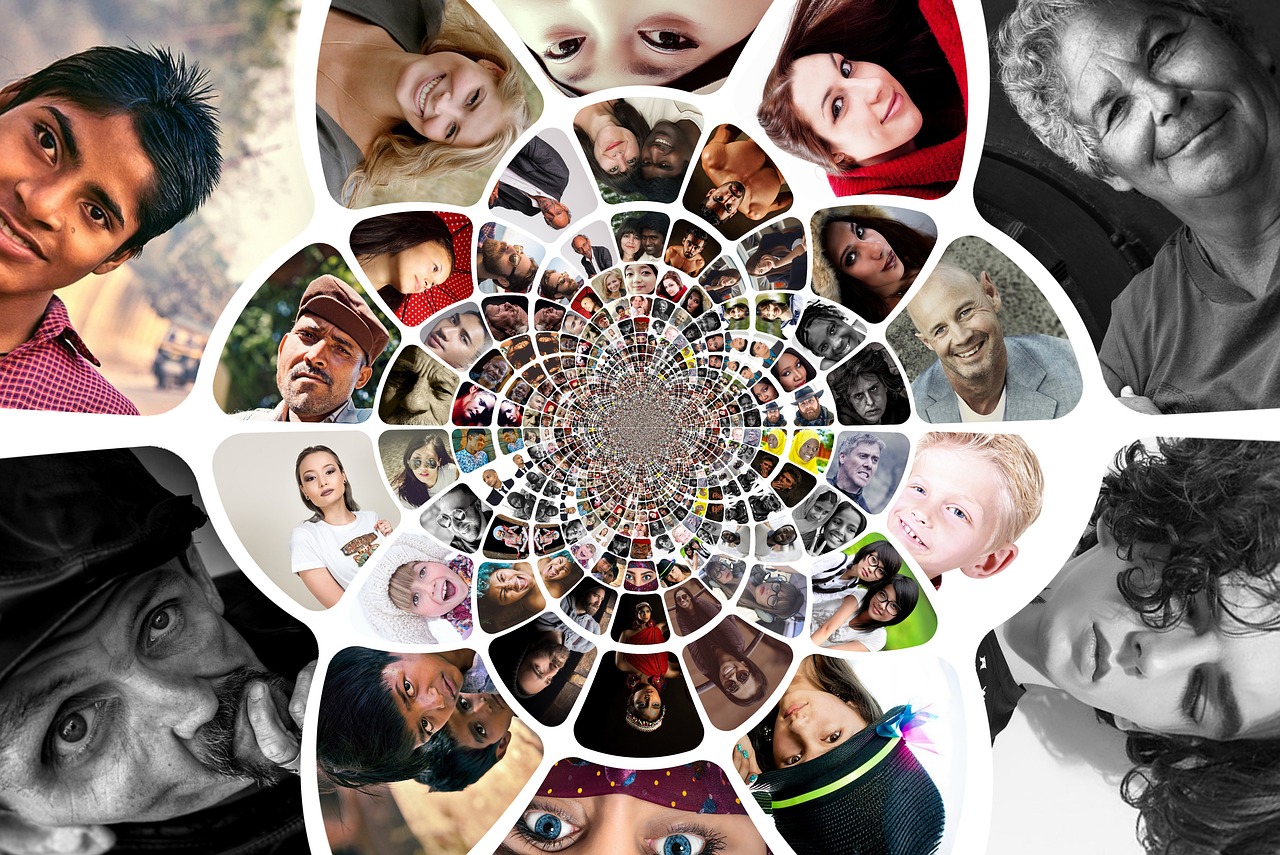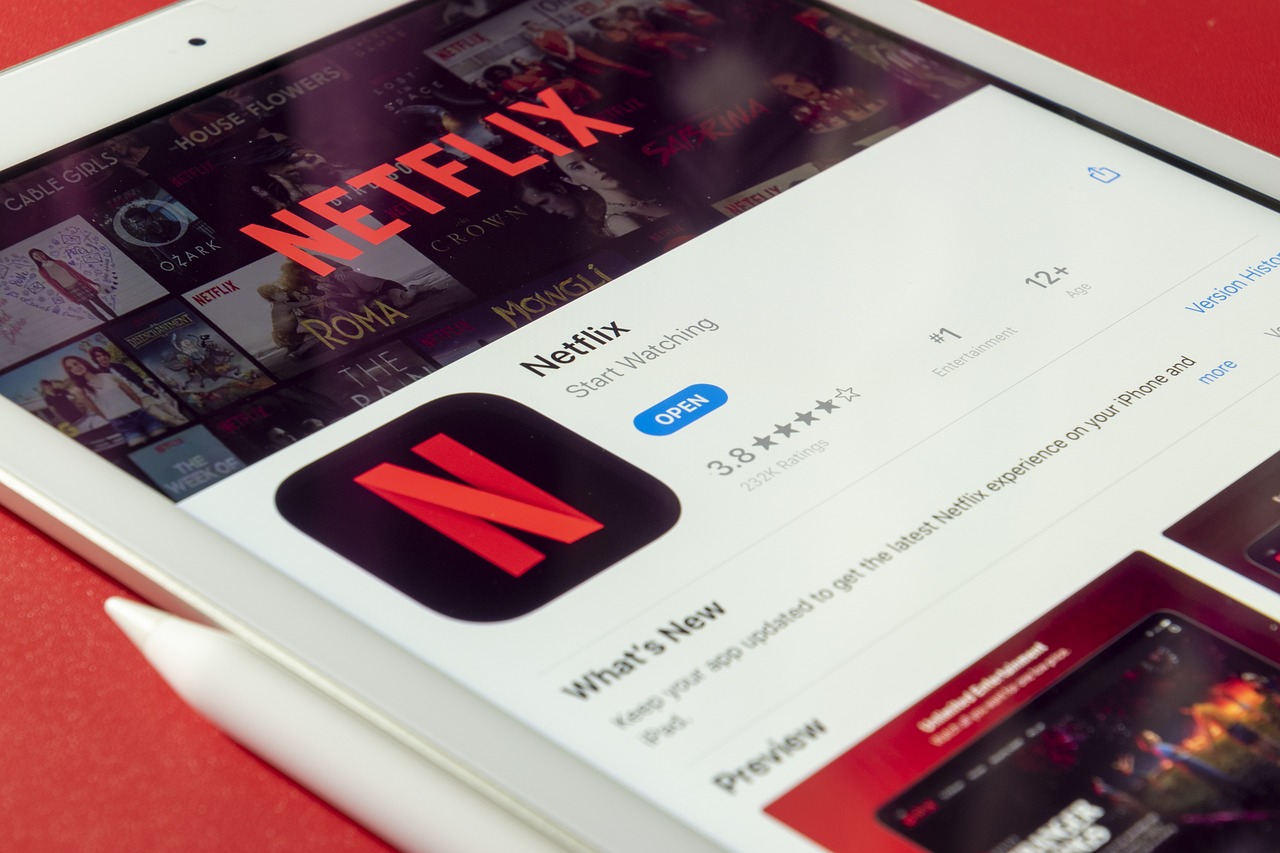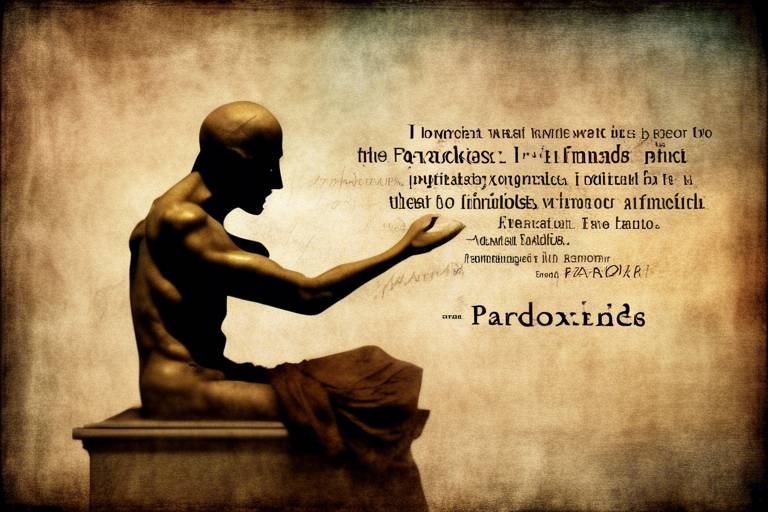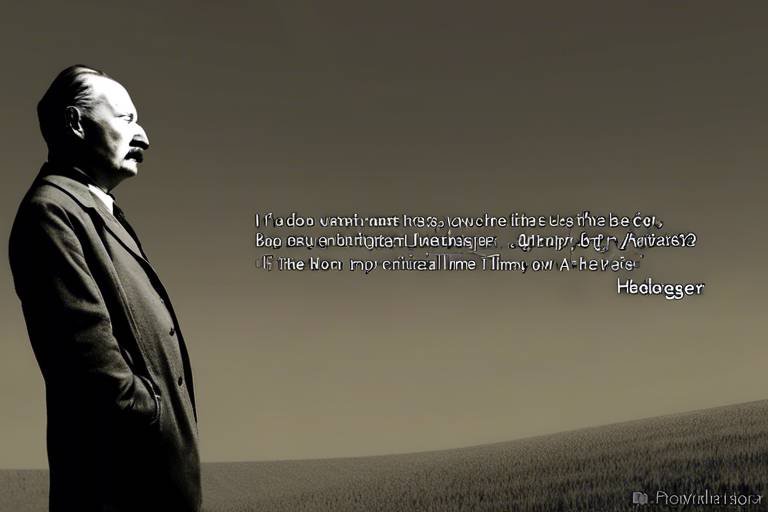The Influence of Social Media on Philosophy
In today's fast-paced digital world, the intersection of social media and philosophy is more relevant than ever. This article explores how social media shapes philosophical discourse, influences public opinion, and alters the way individuals engage with philosophical concepts in the digital age. The rise of platforms like Twitter, Facebook, and Instagram has democratized the way we share and discuss ideas, allowing voices from all walks of life to contribute to age-old philosophical debates. But what does this mean for the quality and depth of those discussions? Are we witnessing a renaissance of philosophical thought, or are we simply drowning in a sea of noise?
Digital platforms have transformed traditional philosophical discussions, allowing diverse voices to participate and share ideas. This section examines how social media has democratized philosophical thought. In the past, philosophical discourse was often confined to academic circles, where a select few dictated the conversation. However, with the advent of social media, anyone with an internet connection can share their thoughts, challenge established ideas, and engage in discussions that were once reserved for the elite. This shift has led to a vibrant and dynamic landscape of ideas, where the barriers to entry are lower than ever.
Consider this: a tweet can spark a global conversation in seconds. Think of the hashtag movements that have emerged, such as #BlackLivesMatter or #MeToo. These movements not only reflect societal issues but also encapsulate philosophical inquiries about justice, ethics, and human rights. Social media serves as a platform for these philosophical movements, giving them the visibility they need to influence public opinion and policy. As a result, we are witnessing a new form of digital philosophy that is not just theoretical but deeply intertwined with real-world issues.
However, the prevalence of misinformation on social media poses challenges for philosophical inquiry. The rapid spread of false information can distort public understanding of complex philosophical ideas, leading to confusion and misinterpretation. In a world where a viral post can reach millions within hours, the responsibility to discern truth from falsehood has never been more critical. This section discusses the impact of false information on public understanding of philosophical ideas.
Engaging with social media requires critical thinking skills. It’s not enough to simply scroll through our feeds; we must actively evaluate the sources and arguments presented to us. This section highlights the importance of developing a discerning eye in an online environment where opinions often masquerade as facts. The ability to question, analyze, and contextualize information is essential in navigating the complex landscape of digital discourse.
Moreover, social media often promotes emotional responses over rational debate. The immediacy of online interactions can lead to knee-jerk reactions, overshadowing thoughtful engagement. We explore how this shift affects philosophical discussions and the pursuit of truth. Are we more interested in winning arguments than seeking understanding? The challenge lies in fostering an environment where rational discourse can thrive amidst the chaos of emotional reactions.
So, how can we enhance our discussions in this digital age? This subsection offers practical strategies for fostering rational discourse, emphasizing the importance of dialogue and respectful engagement. Here are a few approaches:
- Encourage open-mindedness: Be willing to listen to opposing viewpoints.
- Practice empathy: Understand the emotional context behind others' arguments.
- Seek common ground: Focus on shared values to bridge divides.
Social media serves as a platform for emerging philosophical movements. We investigate how these movements gain traction and influence through digital channels. The ability to quickly share ideas and mobilize support has allowed philosophical movements to flourish in ways that were previously unimaginable. From existentialism to postmodernism, these movements are not just academic; they are living, breathing conversations that evolve in real-time.
The ethical implications of social media usage are profound. This section delves into the moral responsibilities of individuals and platforms in shaping philosophical thought. As users, we must consider the impact of our online behavior on others and the broader discourse.
The impact of surveillance on personal freedom raises philosophical questions. We examine how social media's data practices challenge concepts of privacy and autonomy. In an age where our every click is monitored, what does it mean to be free? The tension between connectivity and privacy is a philosophical dilemma that deserves our attention.
Finally, social media has become a tool for activism, intertwining philosophy with social justice movements. This section discusses the philosophical underpinnings of digital activism and its implications for society. Activism in the digital age not only raises awareness but also challenges us to think critically about our roles in societal change. It prompts us to ask: How can we use our digital platforms to promote justice and equality?
1. How has social media changed philosophical discourse? 2. What role does misinformation play in shaping public understanding of philosophy? 3. How can individuals improve their critical thinking skills online? 4. What are the ethical implications of using social media for activism?

The Rise of Digital Philosophy
In today's fast-paced digital landscape, the way we engage with philosophical ideas has undergone a remarkable transformation. Gone are the days when philosophical discussions were confined to dusty libraries or exclusive academic circles. With the advent of social media, a vibrant and diverse tapestry of voices now contributes to the philosophical discourse, making it more accessible than ever before. Imagine a bustling marketplace where ideas are exchanged freely, where anyone with an internet connection can share their thoughts and challenge established norms. This is the essence of digital philosophy.
Social media platforms like Twitter, Facebook, and Instagram have become the new agora for philosophical debate. They allow individuals from all walks of life to engage in discussions that were once the sole domain of scholars and intellectuals. This democratization of thought means that a teenager in a small town can now engage with complex ideas alongside seasoned philosophers. It’s as if the barriers that once separated the elite thinkers from the everyday person have crumbled, paving the way for a more inclusive dialogue.
Moreover, the speed at which information spreads on these platforms is astonishing. A thought-provoking tweet can go viral, prompting discussions that ripple across the globe in mere minutes. This rapid dissemination of ideas can ignite movements, challenge societal norms, and inspire individuals to think critically about their beliefs. However, with this power comes responsibility. The challenge lies in ensuring that the ideas being shared are well-founded and meaningful, rather than merely sensational or misleading.
One of the most significant impacts of social media on philosophy is the ability to engage in real-time discussions. Imagine being able to debate with a philosopher halfway across the world as their thoughts unfold on your screen. This immediacy fosters a dynamic environment where ideas can be refined and challenged instantly. It’s a bit like having a global classroom at your fingertips, where the traditional hierarchies of knowledge are flattened, and everyone is invited to contribute. However, this also raises questions about the quality of discourse. Are we sacrificing depth for speed? Are we more interested in likes and shares than in genuine understanding?
To navigate this new landscape, users must cultivate a sense of critical engagement. This means actively questioning the sources of information, considering multiple perspectives, and being willing to revise one’s own views in light of new evidence. It’s a skill that is increasingly vital in an age where misinformation can spread just as quickly as sound ideas. By fostering a culture of critical thinking, we can ensure that digital philosophy remains a valuable tool for personal and societal growth.
In conclusion, the rise of digital philosophy represents a significant shift in how we think and communicate. It’s an exhilarating time to be part of the philosophical conversation, with opportunities for everyone to contribute. Yet, as we embrace this new era, it’s essential to remain vigilant about the quality of discourse and the ethical implications of our shared ideas. The digital age offers us a chance to redefine what it means to engage with philosophy, making it a truly collective endeavor.
- What is digital philosophy? Digital philosophy refers to the engagement and discussion of philosophical ideas through digital platforms such as social media.
- How has social media changed philosophical discourse? Social media has democratized philosophical discussions, allowing diverse voices to participate and share ideas in real-time.
- What challenges does misinformation pose to philosophy? Misinformation can distort public understanding of philosophical concepts, making it crucial for individuals to engage critically with information.
- How can I improve my critical thinking skills online? Evaluate sources, consider multiple perspectives, and remain open to revising your views based on new evidence.

Philosophy in the Age of Misinformation
In today's digital landscape, the prevalence of misinformation poses significant challenges to philosophical inquiry and discourse. Gone are the days when philosophical discussions were confined to academic journals or exclusive circles; now, anyone with an internet connection can share their thoughts, regardless of their grounding in reality. This democratization of ideas can be a double-edged sword. On one hand, it allows for a vibrant exchange of perspectives, but on the other hand, it opens the floodgates to a deluge of falsehoods that can warp public understanding of fundamental philosophical concepts.
Consider this: how often do we scroll through our feeds, bombarded by headlines that claim to unveil profound truths? Yet, many of these claims are based on shaky premises or outright fabrications. This phenomenon raises a crucial question: how can we, as engaged citizens and thinkers, sift through the noise to find clarity? The challenge lies not only in identifying misinformation but also in understanding its implications on philosophical thought. For instance, when a viral post misrepresents a philosophical argument, it doesn't just mislead individuals; it can skew public discourse, making it harder for rational debate to take place.
To illustrate the impact of misinformation on philosophy, let's look at some common examples:
- Misinterpretation of Philosophical Texts: Quotes taken out of context can change the meaning entirely, leading to widespread misconceptions about a philosopher's views.
- False Dichotomies: Simplifying complex philosophical debates into binary options can mislead audiences and stifle nuanced discussions.
- Viral Misinformation: Ideas that spread quickly online, regardless of their truthfulness, can overshadow well-reasoned arguments that require deeper engagement.
As we navigate this complex terrain, it becomes essential to cultivate critical thinking skills. Engaging with social media requires us to not only consume information but to actively evaluate its sources and arguments. This brings us to the heart of the matter: how can we foster a culture of critical engagement in an era where sensationalism often trumps substance? By promoting media literacy and encouraging individuals to question the information they encounter, we can begin to reclaim philosophical discourse from the grips of misinformation.
Moreover, the emotional responses elicited by sensational posts often overshadow rational debate. In a world where likes and shares can amplify the most inflammatory content, the pursuit of truth can feel like an uphill battle. To counter this, we must develop strategies that prioritize respectful dialogue and the exchange of ideas over mere outrage. By doing so, we can create an environment where philosophical discussions flourish, even amidst the chaos of misinformation.
Ultimately, the challenge is not just about combating misinformation; it's about redefining our relationship with information itself. In the age of social media, philosophy must adapt to these changes, embracing new methodologies while remaining committed to the core principles of rational inquiry and ethical engagement. Only then can we hope to navigate the complexities of our digital age and foster a deeper understanding of the philosophical questions that matter most.
- How does misinformation affect philosophical discussions?
Misinformation can distort public understanding, leading to misconceptions and oversimplifications of complex ideas. - What can individuals do to combat misinformation?
Engaging in critical thinking, verifying sources, and fostering respectful discussions can help mitigate the impact of misinformation. - Why is critical thinking important in the digital age?
Critical thinking enables individuals to navigate the vast amount of information available online, helping them distinguish between credible and false claims.

Critical Thinking and Social Media
In today's fast-paced digital landscape, critical thinking has become more important than ever, especially when navigating the vast sea of information presented on social media platforms. With a simple swipe or click, users can access an overwhelming amount of content, ranging from insightful philosophical debates to misleading memes. This abundance of information can easily lead to confusion, making it crucial for individuals to hone their critical thinking skills. But why is critical thinking so essential in the context of social media?
First and foremost, we must recognize that social media is not just a platform for sharing ideas; it is also a breeding ground for misinformation. The rapid spread of false information can distort public understanding of philosophical concepts, making it imperative for users to evaluate the credibility of sources before accepting or sharing information. Engaging with philosophical ideas online requires a discerning eye, as many posts are designed to provoke emotional responses rather than encourage rational thought. This shift in focus can undermine the very essence of philosophical inquiry, which thrives on reasoned argumentation and logical analysis.
To navigate this complex landscape, individuals should adopt a systematic approach to critical thinking. Here are a few strategies to consider:
- Question the Source: Always ask yourself, who is behind the information? Are they credible? What are their qualifications?
- Analyze the Argument: Break down the argument presented. What evidence is provided? Is it logically sound?
- Consider Alternative Perspectives: Engaging with opposing viewpoints can deepen your understanding and enhance your critical thinking skills.
Furthermore, the emotional nature of social media can lead to echo chambers, where individuals only engage with like-minded people, reinforcing their existing beliefs. This phenomenon not only stifles critical thinking but also limits exposure to diverse philosophical perspectives. To combat this, users should actively seek out discussions that challenge their viewpoints. This practice not only enriches one's understanding of philosophy but also fosters a more nuanced approach to complex issues.
In conclusion, critical thinking is a vital skill for anyone engaging with philosophical ideas on social media. By questioning sources, analyzing arguments, and embracing diverse perspectives, individuals can navigate the digital landscape more effectively. Ultimately, the goal is to cultivate a community where rational discourse thrives, enabling a deeper exploration of philosophical concepts that resonate with our modern lives.

Challenges to Rational Discourse
In the vibrant yet chaotic world of social media, one of the most pressing challenges we face is the erosion of rational discourse. With platforms designed to maximize engagement, emotional responses often take precedence over thoughtful discussions. Have you ever found yourself scrolling through a feed, only to encounter a heated argument that spirals into personal attacks rather than constructive dialogue? This is a common scenario that highlights how social media can distort philosophical conversations. Instead of fostering understanding, these platforms can create echo chambers, where individuals are surrounded by like-minded opinions, reinforcing their beliefs without critical scrutiny.
Moreover, the rapid pace at which information spreads on social media contributes to the challenge. In a world where a tweet can go viral within minutes, the time for reflection and analysis is drastically reduced. This immediacy often encourages snap judgments and hasty conclusions, leaving little room for the nuanced exploration that philosophy demands. For instance, consider how a trending topic can ignite passionate debates. While this may seem like a healthy exchange of ideas, it frequently devolves into a battleground of emotions, overshadowing the rational elements that are essential for philosophical inquiry.
Additionally, the algorithms that govern social media platforms play a significant role in shaping discourse. These algorithms prioritize content that attracts attention—often sensational or controversial posts—over more balanced or intellectually rigorous discussions. As a result, users may find themselves inundated with information that lacks depth, leading to a superficial understanding of complex philosophical issues. This creates a paradox where, despite having access to a wealth of information, individuals may become less informed about the very topics they are passionate about.
To illustrate this point, let’s consider a few key factors that contribute to the challenges of rational discourse on social media:
- Emotional Manipulation: Content that evokes strong emotions tends to generate more engagement, often at the expense of logical reasoning.
- Polarization: Social media can amplify divisions, making it difficult for individuals to engage with opposing viewpoints.
- Lack of Accountability: The anonymity provided by social media can embolden users to make extreme claims without backing them up with evidence.
These factors create an environment where rational discourse struggles to thrive. Philosophical discussions, which thrive on reasoned argumentation and the careful weighing of evidence, are often sidelined in favor of emotionally charged exchanges. This shift not only diminishes the quality of public discourse but also challenges the very essence of philosophical inquiry. How can we seek truth and understanding when the platforms we use prioritize sensationalism over substance?
In conclusion, while social media has the potential to connect us and broaden our philosophical horizons, it also presents significant challenges to rational discourse. As users, it’s crucial to recognize these obstacles and strive for a more balanced approach to online discussions. Engaging thoughtfully, questioning sources, and fostering respectful dialogue can help reclaim the space for rational discourse in the digital age.
- How can I promote rational discourse on social media? Engage with others respectfully, question sources, and encourage thoughtful discussions.
- What are some signs of irrational discourse? Look for emotional manipulation, lack of evidence, and personal attacks instead of reasoned arguments.
- Can social media ever be a force for good in philosophical discussions? Yes, if used mindfully, it can connect diverse perspectives and facilitate meaningful exchanges.

Strategies for Enhancing Discourse
In the chaotic world of social media, where opinions fly faster than the speed of light, enhancing discourse is not just a luxury; it's a necessity. To cultivate a space where philosophical discussions can thrive, we must adopt strategies that encourage respectful engagement and critical analysis. One effective approach is to promote active listening. This means genuinely considering the viewpoints of others before jumping to conclusions or responses. When we listen actively, we create an environment where ideas can be exchanged freely, and this often leads to deeper understanding and richer discussions.
Another vital strategy is to encourage the use of credible sources. In an age where misinformation is rampant, guiding participants to rely on well-researched materials can significantly elevate the quality of discourse. For instance, when discussing ethical dilemmas or philosophical theories, referencing established texts or peer-reviewed studies can ground the conversation in reality, making it less susceptible to emotional outbursts or unfounded claims. Here’s a simple table illustrating the difference between credible and non-credible sources:
| Criteria | Credible Sources | Non-Credible Sources |
|---|---|---|
| Authorship | Written by experts in the field | Anonymous or biased authors |
| Evidence | Supported by research and data | Based on personal opinions or anecdotes |
| Publication | Published in reputable journals or platforms | Published on personal blogs or social media without oversight |
Furthermore, fostering a culture of respectful disagreement can be transformative. It's essential to remind participants that differing opinions are not personal attacks but rather opportunities for growth. When we frame disagreements as a chance to explore new ideas, we can shift the focus from winning arguments to seeking understanding. This mentality can be particularly powerful in philosophical discussions, where the goal is often to uncover deeper truths rather than to 'win' a debate.
Lastly, we should not underestimate the power of moderation and facilitation. Having a neutral party to guide discussions can help keep conversations on track and ensure that all voices are heard. Moderators can intervene when discussions become heated, reminding participants of the ground rules and encouraging a return to constructive dialogue. This can be especially important in online forums where misunderstandings can escalate quickly due to the lack of non-verbal cues.
By employing these strategies—active listening, reliance on credible sources, respectful disagreement, and effective moderation—we can enhance discourse in the digital age. The goal is not just to share ideas but to engage in meaningful exchanges that challenge us to think deeper and reflect on our beliefs. After all, philosophy thrives on dialogue, and in our interconnected world, every conversation is an opportunity to expand our understanding.
- Why is enhancing discourse important on social media?
Enhancing discourse is crucial because it fosters understanding, promotes critical thinking, and helps combat misinformation, leading to more informed public opinions. - How can I encourage respectful disagreement in online discussions?
Encourage participants to view differing opinions as opportunities for growth and understanding rather than personal attacks. - What role do moderators play in online philosophical discussions?
Moderators help maintain a respectful environment, guide discussions, and ensure that all voices are heard, preventing misunderstandings from escalating.

Philosophical Movements Online
In the vast landscape of the internet, philosophical movements are emerging and evolving at an unprecedented pace. Social media platforms like Twitter, Facebook, and Instagram have become the new agora, where thinkers from various backgrounds engage in discussions that challenge traditional philosophical boundaries. These platforms allow for the rapid dissemination of ideas, creating a dynamic environment where concepts can be debated, refined, and redefined in real-time. It's fascinating to see how digital spaces have enabled grassroots movements to flourish, often driven by passionate individuals who might not have had a voice in conventional academic settings.
One of the most notable aspects of these movements is their ability to harness the power of community. Online forums and groups dedicated to specific philosophical themes—be it existentialism, pragmatism, or postmodernism—allow enthusiasts to connect, share resources, and collaborate on projects. This sense of community fosters an environment where diverse perspectives can be explored, enriching the philosophical discourse. For instance, the rise of *philosophical memes* has made complex ideas more accessible, using humor and relatability to engage a broader audience. Who would have thought that a simple meme could spark a deep discussion about the nature of reality or ethics?
Moreover, social media has democratized the way philosophical ideas are presented. No longer are philosophical discussions confined to ivory towers; they are now available to anyone with an internet connection. This shift has led to the emergence of new philosophical movements that often prioritize inclusivity and intersectionality, addressing issues like gender, race, and socio-economic status. Thinkers such as Judith Butler and bell hooks have gained traction not just through traditional publications but also through their active engagement on social media, where they can reach a global audience.
However, with the rise of these movements comes the challenge of maintaining rigor in philosophical inquiry. The speed at which information spreads can sometimes lead to superficial engagements with complex ideas. It’s essential for participants in these discussions to cultivate a sense of critical thinking and to ensure that the dialogue remains constructive. Engaging with philosophical concepts online requires a balance between accessibility and depth, a task that can be daunting in a world filled with distractions.
To illustrate the impact of social media on philosophical movements, consider the following table that highlights some key movements and their characteristics:
| Movement | Focus | Platform | Key Figures |
|---|---|---|---|
| Digital Feminism | Gender equality and women's rights | Twitter, Instagram | Judith Butler, bell hooks |
| Post-Truth Philosophy | Truth and misinformation | Facebook, Reddit | Harry Frankfurt, Hannah Arendt |
| Eco-Philosophy | Environmental ethics | Instagram, YouTube | Arne Naess, Vandana Shiva |
In conclusion, the emergence of philosophical movements online is a testament to the transformative power of social media. These platforms not only facilitate the exchange of ideas but also encourage a more inclusive and participatory approach to philosophy. As we continue to navigate this digital landscape, it’s crucial to remain vigilant about the quality of discourse and to strive for a deeper understanding of the philosophical questions that matter most in our lives today.
- How has social media changed the way we engage with philosophy?
Social media has made philosophical discussions more accessible and inclusive, allowing a wider range of voices to participate and share ideas. - What are some challenges faced by online philosophical movements?
The rapid spread of information can lead to superficial engagement with complex ideas, making it essential to maintain critical thinking. - Can philosophical memes be taken seriously?
Yes! Philosophical memes can serve as entry points for deeper discussions, making complex ideas more relatable and engaging.

Ethics of Social Media Use
The ethical implications of social media usage are profound, touching on various aspects of our lives and society. As we navigate this digital landscape, we must consider the moral responsibilities that come with the power of social media. It’s not just about what we post or share; it’s about how our actions influence others and shape public discourse. In this age of connectivity, every tweet, post, and share has the potential to impact lives significantly, making ethical considerations more crucial than ever.
One of the most pressing issues is the concept of accountability. When users share information, they wield a powerful tool that can either enlighten or mislead. The question arises: how responsible are we for the content we disseminate? Are we merely passive consumers of information, or do we have a duty to verify facts before sharing? In a world where misinformation spreads like wildfire, it becomes essential to cultivate a sense of responsibility among users. This is where critical thinking comes into play.
Moreover, the platforms themselves bear a significant ethical burden. Social media companies must grapple with the consequences of their algorithms, which can amplify harmful content while suppressing nuanced discussions. The challenge lies in balancing freedom of expression with the need to protect users from harmful ideologies. For instance, a recent study highlighted that content moderation policies can either promote healthy discourse or contribute to echo chambers that stifle diverse viewpoints. Thus, it’s not just about the users; the platforms must also act ethically.
Another critical area to consider is privacy and data security. In our quest for connection, we often sacrifice our personal information, sometimes without realizing the extent of this loss. Social media companies collect vast amounts of data, raising ethical questions about consent and autonomy. How much of our personal information should we be willing to share? What rights do we have over our data once it’s out in the digital ether? These questions are not merely theoretical; they have real-world implications for individuals and society as a whole.
As we delve deeper into these ethical considerations, we must also recognize the role of social media in digital activism. Platforms like Twitter and Instagram have become powerful tools for social justice movements, enabling voices that were previously marginalized to be heard. However, this raises additional ethical dilemmas. While social media can amplify important causes, it can also lead to performative activism, where individuals engage in activism primarily for social validation rather than genuine commitment. This duality presents a complex landscape where the motives behind digital activism must be scrutinized.
In summary, the ethics of social media use encompass a wide array of concerns, from accountability and platform responsibilities to privacy and the nature of digital activism. As we continue to engage with social media, it is imperative that we remain vigilant about these ethical dimensions. By fostering a culture of responsibility and critical engagement, we can harness the potential of social media to foster meaningful philosophical discourse and contribute positively to society.
- What are the main ethical concerns regarding social media? The main concerns include accountability for shared content, privacy and data security, and the responsibilities of social media platforms.
- How can users promote ethical behavior on social media? Users can promote ethical behavior by verifying information before sharing, respecting others' privacy, and engaging in respectful discourse.
- What role do social media companies play in ethical issues? Social media companies are responsible for moderating content, protecting user data, and fostering an environment that encourages diverse viewpoints.
- How does social media influence digital activism? Social media amplifies voices and causes, but it can also lead to performative activism, where engagement is more about social validation than genuine commitment.

Privacy and Surveillance
In today's hyper-connected world, where our lives are increasingly intertwined with digital technology, the concepts of privacy and surveillance have taken on new dimensions. Social media platforms, while fostering connection and community, also raise profound philosophical questions about the nature of privacy and the implications of constant surveillance. Have you ever stopped to think about how much of your personal information is out there, just a click away from being accessed by anyone? This reality forces us to grapple with the balance between sharing our lives online and protecting our personal boundaries.
The pervasive nature of surveillance on social media can be likened to living in a glass house. You might feel comfortable sharing your thoughts and experiences, but the reality is that anyone can peek in at any time. The data collected by these platforms—ranging from your location to your browsing habits—can be used in ways that challenge our understanding of autonomy and freedom. For instance, consider the following table that illustrates the types of data typically collected by social media platforms:
| Type of Data | Description |
|---|---|
| User Profile Information | Name, age, gender, interests, etc. |
| Location Data | GPS data, check-ins, and location tags |
| Browsing History | Websites visited and time spent on each site |
| Engagement Metrics | Likes, shares, comments, and interactions |
As we navigate these complexities, we must ask ourselves: What does it mean to be truly free in a world where our every move can be tracked? The philosophical implications are staggering. The concept of autonomy—the ability to make independent choices—becomes muddled when our decisions are influenced by algorithms designed to predict and manipulate our behavior. Moreover, the idea of privacy itself is evolving; it is no longer just about keeping personal information hidden but also about maintaining control over who has access to our lives.
Furthermore, the ethical considerations surrounding surveillance are particularly pressing. Who has the right to access our data, and how should it be used? The line between security and invasion of privacy is often blurred, leading to a slippery slope where individuals may be subjected to constant monitoring without their consent. This raises critical questions about our moral responsibilities as users of these platforms. Should we be more vigilant about our digital footprint, or is it unreasonable to expect individuals to navigate these murky waters alone?
In light of these challenges, it becomes essential for us to engage in meaningful discussions about the ethics of social media usage. We must advocate for transparency from tech companies and demand that our rights as users are respected. Only by doing so can we hope to reclaim some semblance of privacy in an age dominated by surveillance.
- What kind of data do social media platforms collect? Social media platforms typically collect user profile information, location data, browsing history, and engagement metrics.
- How does surveillance impact personal freedom? Surveillance can limit personal freedom by influencing choices and behaviors based on data collected about individuals.
- What can users do to protect their privacy? Users can enhance their privacy by adjusting privacy settings, being mindful of the information they share, and advocating for stronger data protection regulations.

Digital Activism and Philosophy
In the realm of social media, the fusion of digital activism and philosophy has sparked a transformative wave that reshapes how we engage with social issues. Activism, once confined to the streets and public squares, has found a robust platform online, allowing individuals to rally for change with just a few clicks. This evolution raises a myriad of philosophical questions about the nature of activism itself, the ethics of engagement, and the responsibilities that come with digital platforms.
At its core, digital activism is about more than just hashtags and viral posts; it embodies a philosophical commitment to justice and equality. When individuals share their experiences and advocate for change, they are not merely participating in a trend; they are engaging in a dialogue about values and societal norms. This dialogue often reflects deeper philosophical principles, such as utilitarianism, which seeks the greatest good for the greatest number, or deontology, which emphasizes the importance of duty and moral rules.
Consider the impact of movements like #BlackLivesMatter or #MeToo. These social media campaigns have not only raised awareness but have also prompted critical discussions about race, gender, and power dynamics. They challenge us to reflect on our own beliefs and biases, pushing the boundaries of traditional philosophical discourse. The rapid spread of information allows diverse voices to contribute to these conversations, democratizing the philosophical landscape. However, this democratization also comes with challenges, as the sheer volume of information can lead to misunderstandings and polarization.
Moreover, digital activism invites us to ponder the ethical implications of our online engagement. Are we merely spectators, or do we have a moral obligation to act? This question is at the heart of philosophical inquiry in the digital age. As we navigate this complex terrain, we must consider the following:
- What constitutes responsible sharing? Before hitting 'share', we should ask ourselves whether the information is accurate and whether it contributes positively to the discourse.
- How do we balance personal expression with collective responsibility? While social media allows for individual expression, it also places us in a network where our actions can have far-reaching consequences.
- What role does empathy play in digital activism? Engaging with others' experiences and perspectives can enrich our understanding and foster a more compassionate discourse.
As we engage in digital activism, we must remain vigilant about the philosophical underpinnings of our actions. Each post, tweet, or share can serve as a catalyst for change, but it also requires us to be mindful of the implications of our digital footprints. Are we contributing to a culture of understanding and respect, or are we perpetuating division and hostility? These are the questions that challenge us to think critically about our role in this new landscape.
In conclusion, the intersection of digital activism and philosophy is a vibrant and dynamic space that encourages us to reflect on our values and responsibilities. As we continue to navigate this digital age, let us strive to engage with these philosophical questions deeply and thoughtfully, ensuring that our activism is not only impactful but also grounded in ethical considerations.
- What is digital activism? Digital activism refers to the use of digital platforms, particularly social media, to promote social change and engage in advocacy.
- How does philosophy relate to digital activism? Philosophy provides a framework for understanding the ethical implications of activism and encourages critical reflection on our beliefs and actions.
- What are some examples of successful digital activism? Movements like #MeToo and #BlackLivesMatter have successfully utilized social media to raise awareness and advocate for social justice.
- How can I get involved in digital activism? You can start by following organizations that align with your values, sharing credible information, and engaging in discussions about social issues.
Frequently Asked Questions
- How has social media transformed philosophical discussions?
Social media has revolutionized the way we engage with philosophy by democratizing access to ideas. Now, anyone with an internet connection can share their thoughts, fostering a rich tapestry of diverse voices that were once marginalized in traditional settings. This shift allows for a more inclusive dialogue, where different perspectives can collide and coalesce, leading to deeper understanding and innovation in philosophical thought.
- What are the challenges posed by misinformation on social media?
Misinformation spreads like wildfire on social media, creating a significant hurdle for philosophical inquiry. When false information proliferates, it can warp public understanding of crucial philosophical concepts, making it harder for individuals to discern truth from fiction. This environment demands that we sharpen our critical thinking skills to sift through the noise and engage meaningfully with genuine philosophical discourse.
- Why is critical thinking important in the age of social media?
In a world where anyone can publish their thoughts online, critical thinking becomes our best friend. It helps us evaluate sources, discern arguments, and navigate the complex landscape of ideas. Without these skills, we risk being swept away by emotional reactions rather than engaging in rational debate, which is essential for philosophical growth and understanding.
- How does social media affect rational discourse?
Social media often prioritizes sensationalism over substance, encouraging emotional responses rather than rational debate. This shift can undermine the quality of philosophical discussions, making it challenging to pursue truth. By recognizing these dynamics, we can strive to foster environments that promote thoughtful dialogue, emphasizing respect and understanding in our engagements.
- What strategies can enhance philosophical discourse on social media?
To enhance discourse, we can adopt several strategies: engage in respectful dialogue, focus on listening as much as speaking, and critically analyze the arguments presented. Creating spaces for constructive conversation rather than combative exchanges can help cultivate a more thoughtful and enriching philosophical environment online.
- How do philosophical movements gain traction on social media?
Philosophical movements often leverage social media to spread their ideas rapidly. By using hashtags, engaging with followers, and creating shareable content, these movements can reach a broader audience and mobilize support. The viral nature of social media enables these philosophies to gain visibility and influence, often leading to real-world changes.
- What are the ethical implications of social media use?
The ethical implications are vast, encompassing issues of privacy, data surveillance, and the moral responsibilities of both users and platforms. As we navigate this digital landscape, we must consider how our actions online reflect our philosophical beliefs and how they shape societal norms and values.
- How does surveillance impact personal freedom in the context of social media?
Surveillance practices on social media raise critical philosophical questions about privacy and autonomy. When our data is collected and analyzed, it can undermine our sense of freedom, leading to a chilling effect on expression. This tension between connectivity and control invites us to rethink our relationship with technology and the ethical responsibilities that come with it.
- What role does social media play in digital activism?
Social media serves as a powerful tool for digital activism, allowing movements to organize, mobilize, and spread their messages far and wide. By intertwining philosophy with social justice, activists can draw on philosophical principles to advocate for change, challenge injustices, and inspire collective action in ways that were previously unimaginable.



















